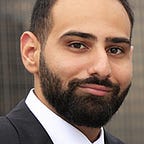The Assassination of Diplomacy; Prospects For Peace With Iran
Last week, Mohsen Fakhrizadeh was assassinated in Tehran, Iran. Nobody has claimed responsibility for the attack that took the life of the academic physicist and alleged father of Iran’s nuclear program. However, Iran’s Foreign Minister Javad Zarif drew a connection between the attack and last week’s meeting between Secretary of State Mike Pompeo, Saudi Arabian Crown Prince Mohammed bin Salman, and Israeli Prime Minister Benjamin Netanyahu. All three parties have denied involvement. History often repeats, and we remain concerned that assassinations of foreign officials may escalate into global conflict just as they once led to the first World War.
President-Elect Joe Biden included in his platform that the United States will re-enter the Joint Comprehensive Plan of Action (JCPOA), or the Iran Nuclear Deal. What many fail to recognize is that Iranians may decide to not participate in any agreement with the United States, regardless of who occupies the White House. Initially, Iranian “hardliners” opposed the agreement signed in 2015 by Iranian President Hassan Rouhani and President Barack Obama believing that America would not keep its promises in the agreement. This proved to be the case when President Trump withdrew the United States from the agreement three years later. The two assassinations in Iran this year have cast further doubt upon U.S. credibility amongst Iranians, allowing for the once-”hardline” view to become adopted by the Iranian mainstream.
For peace initiatives to be fruitful in the Middle East, the United States and Iran must engage in diplomatic agreements and negotiations. Such diplomacy will stabilize the region and thwart efforts for war between America’s allies and Iran. As Iranians prepare to head to the polls in June to elect a new president, President Rouhani’s attempt at nuclear diplomacy is taking center stage amongst Iranians. President Rouhani cannot seek reelection for a third term, and “hardliners” like Hossein Dehghan are bullish on the prospect of diplomacy with the United States; they believe that the United States will never seek peace with Iran. Their narrative has been gaining popular support following America’s assassination of Iranian General Qassem Soleimani and now the assassination of Fakhrizadeh — for which many Iranians believe the U.S. is responsible.
The recent assassination does nothing to thwart Iran’s nuclear program. Sina Toossi, a senior research analyst at the National Iranian American Council, recently told The Middle East Eye that “Iran’s nuclear programme is institutionalised and the loss of one scientist, however influential his role in the programme was at one point, won’t set back Iran’s nuclear capabilities.” He goes on stating that the assassination comes as Trump has become “undoubtedly desperate” after Washington’s “maximum pressure” campaign against Iran failed to yield the results hoped for by the U.S. President and his allies, Netanyahu and Saudi Crown Prince Mohammed bin Salman. “There are many signs that they now wish to escalate tensions further with Iran. Their best hope is to create a destructive situation that ties Biden’s hands diplomatically and prevents any restoration of the [Iran nuclear] deal.”
President-Elect Joe Biden will inherit a broken relationship with Iran riddled with obstacles to diplomatic relations. While Iran’s position is unclear at the moment, they will probably delay any talks with the United States until they elect a new president. They will expect the United States to make more concessions in order to account for their withdrawal from the original JCPOA agreement and the two recent assassinations. In 2015, both sides of the table believed they conceded too much. Regardless of which voice represents Iran in these talks, they will not accept the same concessions, nor is it clear what the U.S. is even willing to offer.
